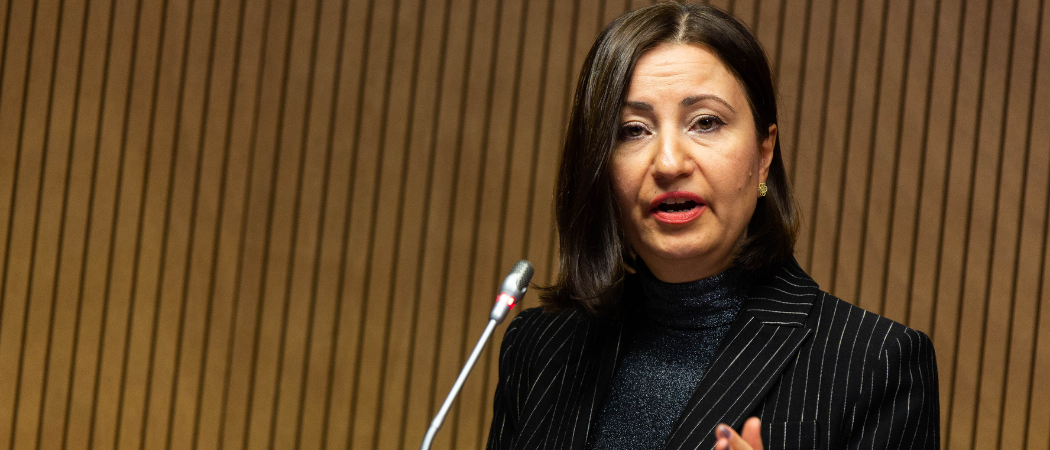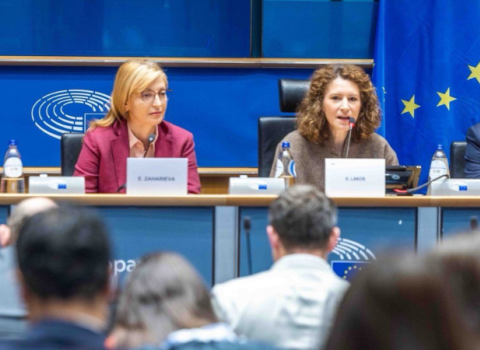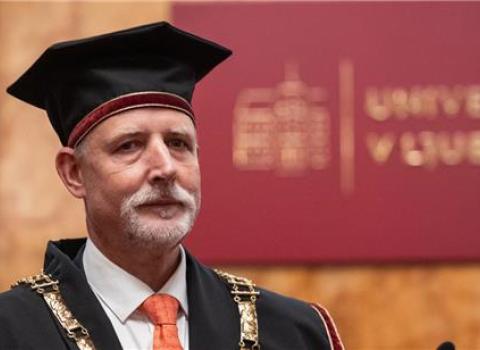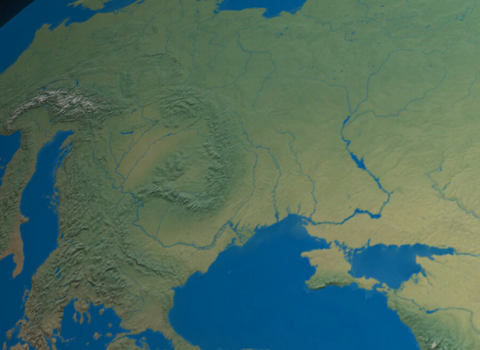Outgoing research commissioner tells member states to invest more in research and innovation

Research commissioner Iliana Ivanova. Photo credits: Bogdan Hoyaux / European Union
Widening countries should “continue investing” in national R&D programmes and reform their funding systems, the outgoing EU commissioner for research and innovation Iliana Ivanova said in reply to 15 EU member states that are calling for Widening to continue in Framework Programme 10.
“I encourage you to continue investing in your national capacities for research and innovation and carrying out structural reforms,” said Ivanova.
Ivanova’s response was in a letter, seen by Science|Business and dated 20 October, just days after the report by the expert group led by former Portuguese science minister Manuel Heitor was published, and a couple of weeks ahead of the parliamentary hearing of Ivanova’s successor, fellow Bulgarian Ekaterina Zaharieva.
The 15 EU research ministers penned their joint letter to both Ivanova and Zaharieva, who is to be the commissioner for start-ups, research and innovation.
The ministers, representing Bulgaria, Croatia, Cyprus, Czechia, Estonia, Greece, Hungary, Latvia, Lithuania, Malta, Poland, Portugal, Romania, Slovakia, and Slovenia, insist FP10 needs to keep the ‘Widening participation and spreading excellence' component and continue advancing research excellence in the EU.
The ministers also called for a doubling of the Widening budget under FP10. Since it was set up in Horizon 2020 in a bid to close the east-west divide in research, the Widening programme has helped many researchers, institutions and countries lift themselves in EU research competitions.
However, the Heitor report says the Widening programme should be restructured in FP10 so it has fewer instruments, is easier to use, and more effective. Alongside this restructuring, the report also recommends Widening should be renamed ‘Advancing Europe’.
In her reply Ivanova reviewed the Commission’s efforts to simplify Horizon Europe and boost participation from all member states. She also noted the Widening programme has been “strengthened” over the past few years with new instruments and additional money.
According to data cited by Ivanova, Widening countries increased their standing in EU funding schemes from 15.1% participation and 9.5% of grants received in Horizon 2020, to 19.6% participation and 13.6% of grants received in Horizon Europe. Ivanova also notes that the rate of new participants in Horizon Europe is slightly higher in Widening countries than in the rest of the EU (48% compared to 45%). “This demonstrates the tremendous potential that exists throughout the EU when we create the right conditions for success,” she said.
Ivanova did not comment on what should happen next with the Widening programme, apart from urging member states to invest more in R&D and boost their national capacity in science and technology.
Strengthen national efforts
Zaharieva gave away some of her ideas on how to fix the east-west research and innovation gap for her upcoming mandate during her hearing in the European Parliament earlier this month. She said the success of the Widening programme hinges on strengthening national efforts in research and innovation spending.
“I will be very much focused on the Widening measures, and not only on the measures themselves, but how to improve the participation of Widening member states in all parts of Horizon Europe,” Zaharieva said.
Zaharieva breezed through her parliamentary hearing, but it’s unclear when she will start her mandate. The 27 new commissioners come as a package, and political factions in the European Parliament are still haggling over who will hold the four executive vice president positions in the new Commission.
But it seems that member states have already acknowledged the call for increased R&D investment. At a summit in Budapest this month, EU leaders agreed to increase national efforts to meet the long-standing objective of investing 3% of their GDP in research and development by 2030. The target was first set in 2002, but a large majority of countries have failed to raise their R&D expenditure to that level.
Now, with fresh impetus from the report by Heitor, and another by former Italian prime ministers Enrico Letta and Mario Draghi, member states seem to be willing to spend more and work on a proposal to establish a ‘fifth freedom’ for research in the EU.
This political commitment will be put to the test during the negotiations for the EU’s next multiannual budget. The new budget is due to start in 2029, but negotiations will start next year, after the Commission puts out a first proposal.
The Commission is also expected to push for greater alignment of national and EU funds, with the European Semester, the EU’s main policy tool for coordinating economic and fiscal policy, reviewing public and private RD&I spending in member states, including money coming to research from EU structural funds.





 A unique international forum for public research organisations and companies to connect their external engagement with strategic interests around their R&D system.
A unique international forum for public research organisations and companies to connect their external engagement with strategic interests around their R&D system.